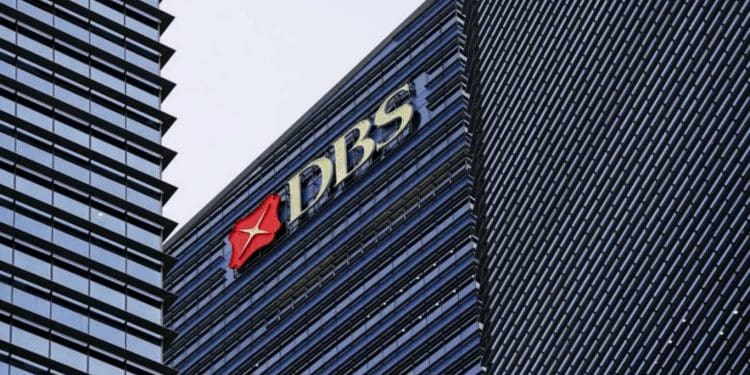Singapore’s largest bank, DBS bank, completed an intraday repo transaction on J.P. Morgan’s blockchain-based network platform 1, Onyx Digital Assets.
The largest lender in Southeast Asia, DBS bank, has said it is the first to complete an intraday repurchase transaction on a blockchain-based network. The move adds value to DBS’s liquidity needs because by leveraging the benefits of a blockchain-based solution, DBS can raise USD funding over small timeframes.
Head of Markets Distributed ledger Technology at JPMorgan, Scott Lucas, underscored the efficacy saying:
“JPMorgan’s intraday repo solution helps clients boost operational efficiencies and accelerate settlements for their repo activities.”
Lucas also appreciated having the bank’s first Asia-domiciled client live on the application, adding that it was part of the network’s commitment to growth.
Repos, short for repurchase agreements, are used by banks for short-term funding by selling securities such as U.S. Treasuries and agreeing to repurchase them later. Repos are a vast market, as over $4 trillion in U.S. dollar Repos is outstanding at any one time.
As repos serve for short-term funding, the disadvantage is that settlement typically takes two days. With its instant compensation or ‘delivery versus payment (DvP), Distributed ledger technology (DLT) makes it practical to have repo transactions spanning a few hours compared to a day or two. Noteworthy, blockchain is powering many other forms of intraday funding, including swaps.
Onyx Expedites Transaction Speed
Onyx supports instant settlements and maturity of the transactions within hours, upscale from the current industry standards, where transactions take one or two days. In a statement by the Head of Treasury and Markets at DBS, Andrew Ng explained:
“Repurchase agreements or repos are a traditional and well-established method of raising financing, but infrastructural and technical inefficiencies meant the minimum term has usually been one day. In the past, banks worldwide had to explore alternative routes for intraday financing requirements.”
As regards JPMorgan’s Onyx Digital Assets, other than tokenizing the repo security, the DLT repo solution also uses its blockchain-based bank account, JPM Coin, to enable instant settlement.
DBS joins others like BNP Paribas and Goldman Sachs, who are already tapping from JPMorgan’s blockchain-based network for repo trades. BNP Paribas joined in May 2022, a wise decision that saw the company record cumulative transactions of up to $300 billion. This was a massive improvement since its launch in December 2020.
According to Ed Bond, Head of Trading Services Asia Pacific at J.P. Morgan, this is the first time JPMorgan is acting as Tri-party Agent and Collateral Token Agent. Looking into Ed Bond’s statement, typically, Tri-party agents are custodians that help with collateral management. For instance, they calculate margin requirements and settlement, including handing over securities when a transaction completes. The collateral would be the underlying security in the repo transaction, such as a U.S. Treasury.
When the collateral is tokenized, an independent party must take the real-world collateral, immobilize it, and tokenize it. The reverse is true if the security is moved off the DLT platform. That immobilization and tokenization is the role of the Collateral Token Agent.
Monetary Authority of Singapore Exploring Blockchain-based Digital Technologies
DBS’s move to complete an intraday repo transaction on J.P. Morgan’s blockchain-based network is part of the developments led by the Monetary Authority of Singapore, which is the city-state’s central bank, to explore digital technologies around blockchain.
Earlier in November, DBS had announced being among the first financial institutions to test the trading of foreign exchange and government securities by levering licensed decentralized finance (DeFi) liquidity pools on a public blockchain.
The transactions comprised the purchase and sale of tokenized Singapore government securities- the Singapore dollar, Japan government bonds, and Japanese yen. These were all part of the Monetary Authority of Singapore’s Project Guardian for exploring and testing financial technology developments.
The close relationship between DBS Bank and JPMorgan’s Onyx unit is worth noting, as they are both Partier backers. Partior is a blockchain payments network based in Singapore and backed by Temasek and Standard Chartered. All of them are involved in the Monetary Authority of Singapore’s Project Guardian, exploring DeFi for financial institutions.














